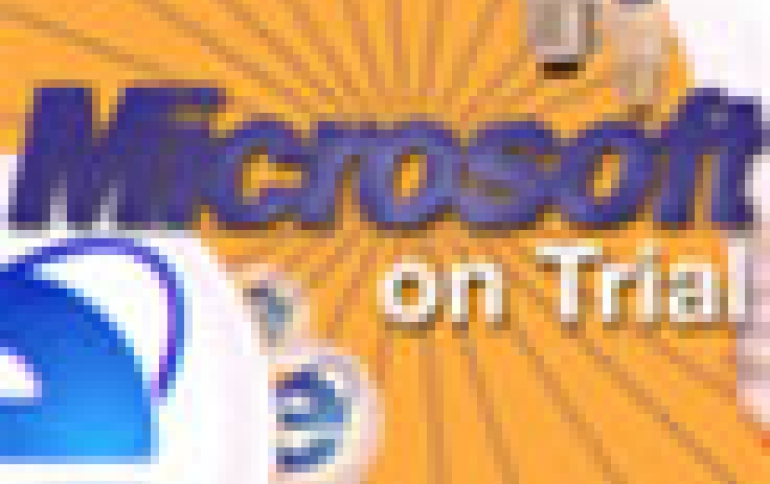
EU Questions Microsoft Over Software Bundling
European Union court judges questioned Microsoft on Tuesday about the bundling of its Media Player with Windows in the second day of its trial against the EU.
he special 13-judge panel is weighing whether the Commission, Europe's top competition regulator, was right to decide Microsoft abused the dominance of its Windows operating system to eliminate competitors.
On the second day of a five-day hearing, judges began their study of evidence concerning Microsoft's bundling of its Media Player with Windows, used by 95 percent of the world's PCs, which the EU said killed off consumers' incentive to buy other player software.
"Microsoft insists very strongly in this case that its operating system is a product with media functionality that evolves and improves and expands with the evolution of technology," Judge John Cooke said. "Am I correct that you would say this is a single system?"
A Microsoft official replied: "You are correct."
Microsoft argues that consumers had benefited from the improved operating system in which the media player was part of a natural evolution and that in contrast to the Commission's predictions, competition in the industry is thriving.
On Monday, Microsoft's rivals presented memos exchanged by the company's top executives including founder Bill Gates, which, they said, showed it planned to crush the then top audiovisual software provider, RealNetworks, in the same way it had demolished internet browser provider Netscape.
"(RealNetworks) is like Netscape. The only difference is we have a chance to start this battle earlier in the game," one executive was quoted as saying in a memo sent after a meeting with Gates and others.
A U.S. court ruled in 2001 that Microsoft's bundling of its own Internet Explorer browser was illegal.
The memos overshadowed the rehearsed presentations, drowned in technical detail, by the Commission and Microsoft. Both called each others' arguments flawed and speculative.
On Wednesday and Thursday, judges will review the Commission's action over what it says was Microsoft's failure to provide information rivals needed to create software able to run with Windows as smoothly as Microsoft's own products.
Microsoft will argue that it has given plenty of server software information away and that providing more would infringe its intellectual property rights over innovations that it has worked long and hard to develop.
A decision in the case is not expected for months, possibly a year.
On the second day of a five-day hearing, judges began their study of evidence concerning Microsoft's bundling of its Media Player with Windows, used by 95 percent of the world's PCs, which the EU said killed off consumers' incentive to buy other player software.
"Microsoft insists very strongly in this case that its operating system is a product with media functionality that evolves and improves and expands with the evolution of technology," Judge John Cooke said. "Am I correct that you would say this is a single system?"
A Microsoft official replied: "You are correct."
Microsoft argues that consumers had benefited from the improved operating system in which the media player was part of a natural evolution and that in contrast to the Commission's predictions, competition in the industry is thriving.
On Monday, Microsoft's rivals presented memos exchanged by the company's top executives including founder Bill Gates, which, they said, showed it planned to crush the then top audiovisual software provider, RealNetworks, in the same way it had demolished internet browser provider Netscape.
"(RealNetworks) is like Netscape. The only difference is we have a chance to start this battle earlier in the game," one executive was quoted as saying in a memo sent after a meeting with Gates and others.
A U.S. court ruled in 2001 that Microsoft's bundling of its own Internet Explorer browser was illegal.
The memos overshadowed the rehearsed presentations, drowned in technical detail, by the Commission and Microsoft. Both called each others' arguments flawed and speculative.
On Wednesday and Thursday, judges will review the Commission's action over what it says was Microsoft's failure to provide information rivals needed to create software able to run with Windows as smoothly as Microsoft's own products.
Microsoft will argue that it has given plenty of server software information away and that providing more would infringe its intellectual property rights over innovations that it has worked long and hard to develop.
A decision in the case is not expected for months, possibly a year.





















